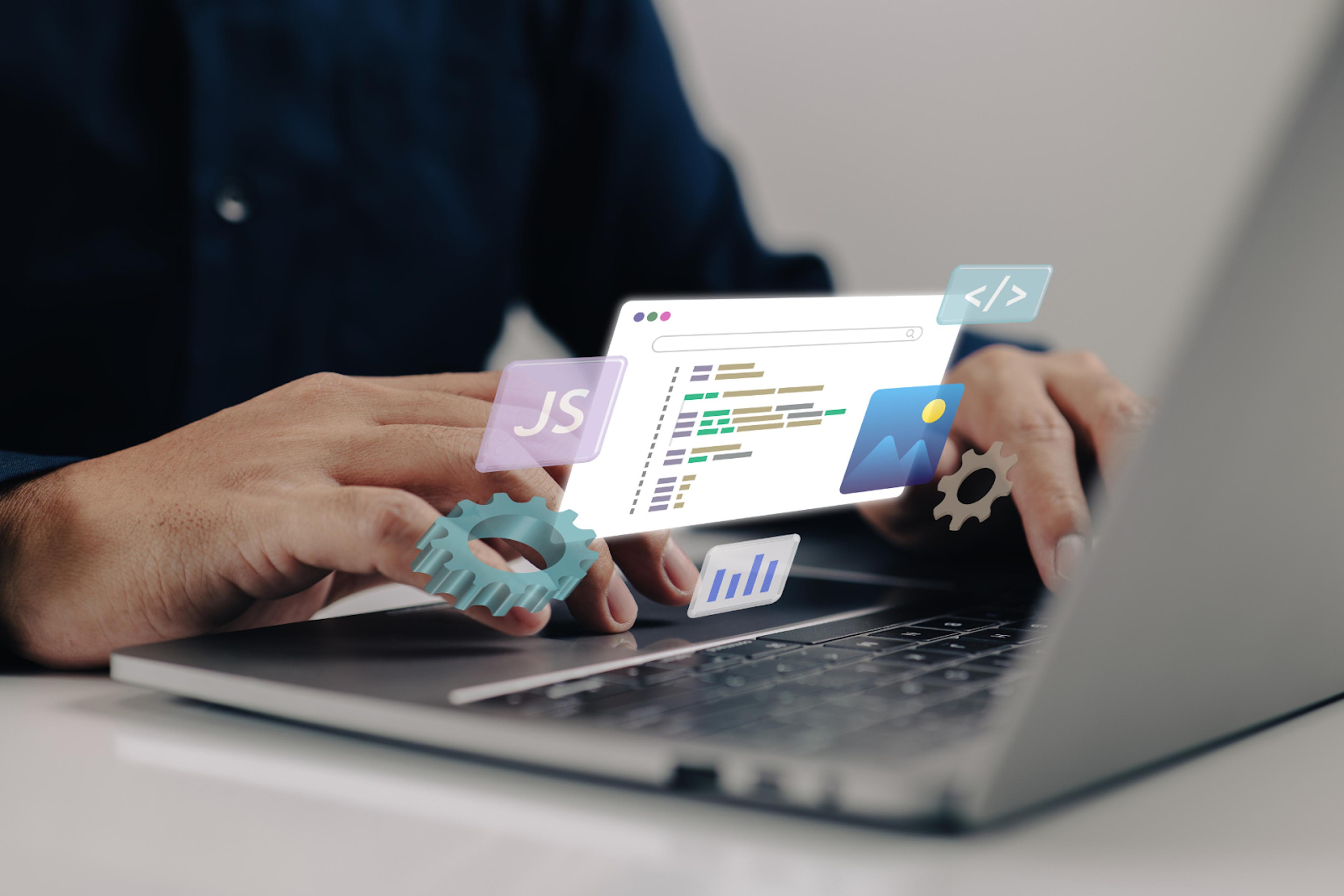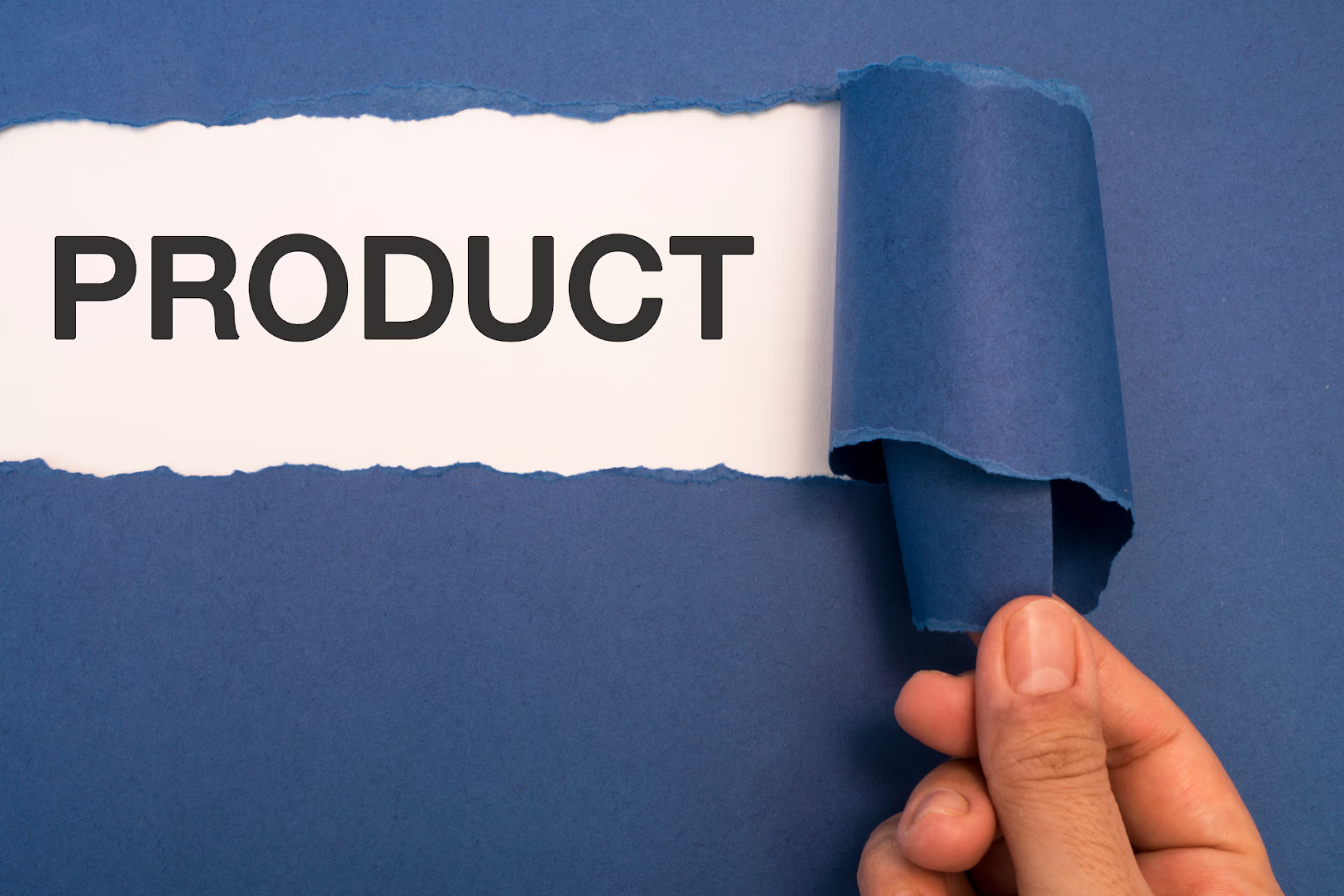Product Management Case Study Interviews: The Ultimate Guide
Master product management case study interviews with our ultimate guide. Learn frameworks, sample questions, and tips to excel in your next interview.
Posted March 6, 2025

Stay in the loop. Go places.
Join 100,000+ others and receive free resources, exclusive event invites, and personalized support to reach your goals.
Table of Contents
Are you gearing up for a product manager case study interview? You're about to face one of the most challenging and crucial steps in landing your dream job. The product manager case study interview is a key part of the hiring process, designed to test your problem-solving skills, product thinking, and ability to handle real-world scenarios.
In this article, we'll walk you through everything you need to know to ace your product manager case study interview. We'll cover what these interviews entail, how to prepare effectively, and the different types of case studies you might encounter. You'll also find example questions, strategies to structure your responses, and tips to stand out from other candidates. Whether you're a seasoned pro or new to product management, this guide will help you tackle your interview with confidence.
What Is a Product Manager Case Study Interview?
A product manager case study interview is a crucial part of the hiring process for product management roles. It's designed to evaluate your problem-solving skills, product thinking, and ability to handle real-world scenarios. This interview typically lasts 15 to 45 minutes and places you in a hypothetical business situation where you're asked to strategize, design, improve, or grow a particular product.
Types of PM Case Studies
There are four main types of product manager case study questions you might encounter:
- Product Design: These questions ask you to design a new product or improve an existing one. For example, you might be asked to design a product to help users find doctors on Facebook.
- Product Strategy: These questions focus on the bigger picture, because product strategy is virtually aligned with broader business objectives, requiring you to think about how a product contributes to the company's overall business. You might be asked how you would monetize Facebook Messenger, for instance.
- Estimation and Analysis: Estimations questions test your ability to make decisions with limited data. You might be asked to estimate the number of queries Gmail gets per second.
- Scheduling/Operational: These questions assess your ability to turn ideas into deliverable tasks and manage stakeholders effectively.
Key Skills Assessed
Product manager case study interviews aim to evaluate several critical skills:
- Problem-solving: Your ability to structure nebulous problems and provide data-driven recommendations.
- Communication: How effectively you can explain your thought process and ideas to diverse stakeholders.
- Product vision and strategy: Your capacity to formulate a compelling product vision and align it with business goals.
- Creativity and innovation: Your ability to think outside the box and come up with innovative solutions.
- Industry knowledge: Your understanding of the product landscape and market dynamics.
Common Case Study Formats
Case study interviews generally follow two main formats. The first is a live interview, typically conducted over a 45-minute video call, where you're asked to solve problems verbally. In some cases, interviewers may allow you to use tools like Google Docs for visual aids during the session. The second format is a homework assignment, where you're given a prompt and asked to prepare a presentation or document. This approach allows for more in-depth analysis and structured responses but requires a greater time investment in preparation.
Both formats have their merits, and companies choose based on their specific needs and hiring timelines. Regardless of the format, the goal remains the same: to simulate the challenges you'll face as a product manager and assess your readiness for the role.
How to Prepare for the Product Manager Case Study Interview
Preparing for a product manager case study interview requires a strategic approach. Here's how you can get ready:
Research the Company
Start by thoroughly researching the company you're applying to. Understand their products, business models, and recent market trends. This knowledge will help you tailor your responses to the company's specific context. Pay attention to their customers, competitors, and the technologies they use. For example, knowing whether their product is B2B or B2C can significantly impact your approach to product strategy questions.
Look into the company's website, blog, and support channels for valuable insights. If possible, sign up for a free trial of their product to gain first-hand experience. This research will not only help you answer questions more effectively but also demonstrate your genuine interest in the company.
Practice Frameworks
Familiarize yourself with key product management frameworks. These structured approaches will help you tackle various types of case study questions systematically. Some essential frameworks include:
- CIRCLES: A seven-step framework for approaching innovation problems in both consumer and enterprise software and hardware.
- RICE: A four-step framework for prioritizing features or product backlogs.
- AARRR or AARM: Frameworks to help brainstorm product metrics.
- STAR: Situation, Task, Action, Result - a framework for structuring your responses to behavioral questions.
Practice applying these frameworks to sample case studies to build confidence and fluency in using them during your interview. Note that not everyone may find frameworks helpful – use the system that works best for you and your thought processes.
Improve Analytical Skills
Improving your analytical skills is essential for tackling data-driven questions in product management interviews. Start by learning SQL, as many companies provide product managers with direct access to data, making it crucial to understand how to pull information from relational databases. Additionally, mastering Excel is important – practice creating projections, pivot tables, and relevant data visualizations to present insights effectively. Familiarize yourself with key metrics based on the product type, such as Daily Active Users (DAU), Monthly Active Users (MAU), Average Revenue Per User (ARPU), Lifetime Value (LTV), and conversion funnels. Lastly, build your mental math skills to quickly process numerical data and statistics, which is often necessary during interviews.
Types of Product Manager Case Studies
Product manager case study interviews are a crucial part of the hiring process, designed to evaluate your problem-solving skills, product thinking, and ability to handle real-world scenarios. These interviews typically present you with hypothetical business situations where you're asked to strategize, design, improve, or grow a particular product. Let's explore the main types of case studies you might encounter:
Product Design Cases
Product design questions are the most common type of case study in product manager interviews. These questions assess your ability to think critically about a new or potential product, focusing on target users, their needs, and how the product satisfies those needs. For example, you might be asked to design an app for grocery delivery that provides the best user experience or to improve an existing product like Google Maps.
When tackling product design cases, it's essential to: 1) Identify the target user group(s), 2) Describe their user needs, 3) Think about how the product satisfies those needs, and 4) Consider the product's features, functionality, and user experience.
See more: The Product Design Interview: Ultimate Guide (With Common Questions)
Business Strategy Cases
Business strategy questions have become increasingly popular in product manager interviews, requiring candidates to think beyond the product itself and consider how it contributes to the company's overall business success. You may be asked to monetize a feature, explore new market opportunities, or develop strategies to address customer churn. To approach these cases effectively, start by considering the company’s business model and its competitors, which will provide context for strategic decisions. Next, identify key metrics that define success, whether it’s improving customer retention or increasing revenue per user. Demonstrating analytical thinking and strong prioritization skills is also essential, as you’ll need to assess various factors and weigh the pros and cons of different solutions. Finally, always balance user needs with business objectives, ensuring that your product decisions both satisfy customers and align with the company’s long-term goals.
Metrics and Data Analysis Cases
Many companies include estimation and analysis questions in their case study interviews to evaluate how comfortable you are making decisions with limited data and deriving key performance indicators (KPIs) for a product. These types of questions assess both your analytical thinking and your ability to apply metrics effectively in real-world scenarios. For instance, you might be asked to estimate the number of queries Gmail processes per second, track user engagement in an app and suggest KPIs to improve it, or investigate a sudden increase in ride cancellations.
When approaching these cases, it’s important to demonstrate your ability to break down complex problems into manageable steps. Start by framing the question and identifying the critical factors that influence the outcome. Show your understanding of relevant metrics, such as active users, engagement rates, or conversion funnels, depending on the context of the question. Additionally, be sure to clearly explain your thought process, walking the interviewer through each step of your analysis. Use any available data or reasonable assumptions to support your recommendations, ensuring that your approach is both logical and data-driven.
Common Product Manager Case Study Questions
To help you prepare for your product manager case study interview, here are ten example questions that you might encounter:
- Design a pen for an astronaut. Consider the unique challenges of writing in space, such as lack of gravity and extreme temperatures. How would you ensure the pen functions reliably in these conditions?
- Create an umbrella specifically for children. Think about the size, weight, and ease of use for small hands. How would you make it both functional and appealing to kids?
- Develop a phone for people with hearing loss. What features would you include to make communication easier for this user group?
- Design a car for individuals with visual impairments. How would you ensure safety and independence for these users?
- Create a dictionary lookup tool for Scrabble players. How would you make it efficient and tailored to the game's specific needs?
- Develop an app for a community of people with Celiac disease. What features would be most helpful for managing their condition and connecting with others?
- Design a grocery app that simplifies shopping for busy consumers. How would you streamline the process from list-making to delivery?
- Improve the design of a washer and dryer set. What innovations could you introduce to enhance efficiency and user experience?
- Reimagine the alarm clock for modern users. How would you address common pain points like oversleeping or disturbing others?
- Create a bike-based delivery service. What solutions would you propose to overcome challenges like transporting large objects or navigating hilly terrain?
Interviewers want your perspective on how to enhance the existing products and experiences (hence the types of questions), as they assess your ability to improve user experiences by identifying and prioritizing user pain points, proposing innovative solutions, and measuring success. The main focus is on your understanding of the key metrics to evaluate when refining a product or experience.
When approaching the product management questions, remember to consider the business objectives, user problems, and potential solutions. For example, when designing a pen for an astronaut, you might think about:
- Business objective: Is this for a government agency or a private space company?
- User problems: Ink flow in zero gravity, limited space and weight allowances, writing at any angle.
- Possible solutions: Pressurized ink cartridges, compact and durable design, multi-surface writing capabilities.
Practice structuring your responses using frameworks like CIRCLES or RICE to demonstrate your product thinking and problem-solving skills. Remember, the goal is not just to provide a solution but to showcase your thought process and ability to consider various aspects of product management.
Find the best product management coach to work with on your mock case study interviews for one-on-one, personalized support here.
5 Steps to Structure Your PM Case Study Response
Structuring your response effectively is crucial for success in a product manager case study interview. Here are five approaches to help you organize your thoughts and present a compelling solution:
Clarify the Problem
Before diving into solutions, it's essential to fully understand the problem at hand. Start by asking clarifying questions to gather more information about the company, its goals, and the specific challenge. This demonstrates your analytical skills and ensures you're addressing the right issues. For example, you might ask about the target audience, current metrics, or any constraints.
Develop a Framework
Once you've clarified the problem, create a structured framework to guide your analysis. Popular frameworks include CIRCLES (Comprehend, Identify Customers, Report customer needs, Cut through prioritization, List Solutions, Evaluate Trade-offs, Summarize) or the 5 C's (Company, Competitors, Customers, Collaborators/Channels, Climate and Cost). These frameworks help you organize your thoughts and ensure you cover all critical aspects of the problem.
Analyze Data
Use data to support your decisions and recommendations. Showcase your analytical skills by breaking down complex problems and providing data-driven insights. For instance, you might estimate user adoption rates or calculate potential revenue impact. Remember to explain your thought process clearly and use reliable sources for any data points you reference.
Generate Insights
Focus on developing unique insights that demonstrate your product thinking abilities. Instead of simply listing features, explain how your proposed solution addresses user needs and aligns with business goals. Consider using frameworks like SCAMPER (Substitute, Combine, Adjust, Modify, Put to other uses, Eliminate, Reverse/Rearrange) to generate innovative ideas.
Make Recommendations
Conclude your response with clear, actionable recommendations. Prioritize your suggestions based on their potential impact and feasibility. Use frameworks like RICE (Reach, Impact, Confidence, Effort) to evaluate and rank your ideas. Be prepared to discuss trade-offs and explain the rationale behind your decisions. Remember to tie your recommendations back to the original problem and company goals.
Conclusion
If you want to land your dream product management job, mastering the PM case study interview is your key to achieving that. The interview process can be particularly rigorous, so it’s important to understand the various types of product management case studies, practice structured approaches, and improve your analytical skills. That way, you'll gain useful insights and you will be well-equipped to tackle any challenge thrown your way. Always research the company thoroughly, explore the broader market, use relevant frameworks, and keep the user's needs at the forefront of your thinking.
In the end, success in these interviews boils down to showcasing your problem-solving abilities, product vision, and communication skills. Be sure to highlight your understanding of growth strategy and the potential for expanding into a new market. By following the strategies outlined in this guide and practicing regularly, you'll boost your confidence and increase your chances of acing the interview. Good luck on your journey to become a stellar product manager!
FAQs
How to approach a case study interview with a product manager?
- In a case interview with a product manager, start by clarifying the business problem and understanding the target market. Conduct market research to gather insights and identify opportunities for product success. Map out the customer journey to ensure your solution addresses key user pain points.
What does a product manager case study look like?
- A product manager case study involves analyzing a product or scenario and defining solutions to improve the customer journey. It focuses on how well you understand the target market and your ability to propose strategies that lead to product success.
How do you study for a product manager interview?
- To study for a product manager interview, practice analyzing case studies and focus on understanding the customer journey to craft solutions that align with the target market.
How should I prepare for product management case study interviews?
- To prepare for a product management case study interview, focus on honing your product management skills, including structured thinking and problem-solving. Practice breaking down problems into manageable parts and identifying success metrics to measure success in your proposed solutions.
What strategies can help you succeed in a case study interview?
- To succeed in a product management interview, clearly communicate your approach using structured thinking and focus on understanding the hiring manager's expectations. Identify the right success metrics to measure success, and remember there may not be one right answer.
What constitutes a product manager case study?
- A product manager case study typically involves solving a real-world problem to demonstrate key product management skills. It tests your ability to analyze data, propose solutions, and measure success through relevant success metrics.
What are the steps to prepare for a product manager interview?
- To prepare for a product management interview, review common case studies, practice structured thinking, and refine your ability to define success metrics. It's also essential to showcase your product management skills and align your answers with what the hiring manager is looking for.
Read next:
- An Overview of the Different Roles in Product Management
- Preparing for Your Product Manager Behavioral Interview: Tips and Strategies
- Preparing for Your Product Manager Interview: Top Questions and Expert Tips
- How to Get Into the Facebook/Meta RPM Program (2024)
- How to Get Into the Google APM Program (2023-2024)


















